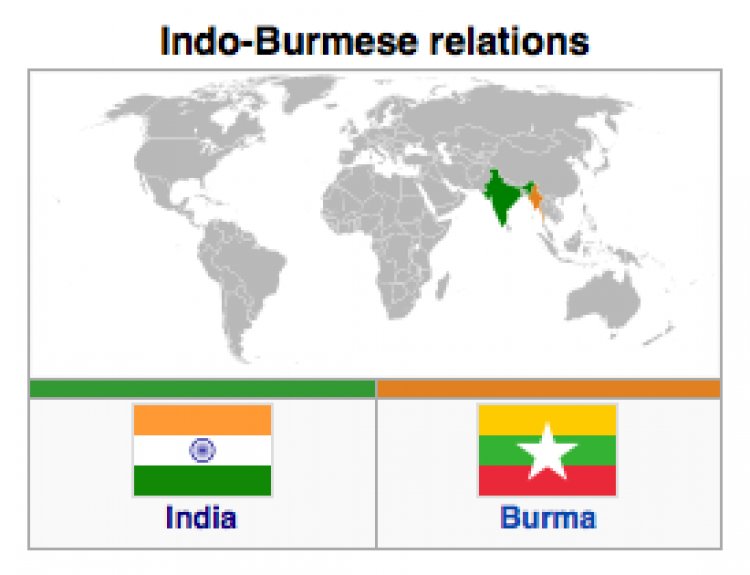India - Myanmar: India’s Naypyitaw Dilemma

The military coup is certain to further raise geo-political tensions in the region sandwiched as Myanmar is between India and China, both competing for power and influence. Given its high-stakes in Myanmar, Happymon Jacob (teaches at the Jawaharlal Nehru University and recently founded the Council for Strategic and Defense Research, a New Delhi-based think tank) writes “New Delhi would need to be nimble-footed and creative in its responses with well-thought-out strategic choices taking precedence over knee-jerk reactions.”
The China factor
Even though there will be short term loss for China having been cultivating Suu Kyi, of concern will be the fact that “international community’s sharp reactions will likely force the ‘Tatmadaw’ (Myanmar military) to turn to China. Even though international sanctions are unlikely to have a major impact on the country’s largely inward-looking junta and its Generals with little external interests, it would still expect Beijing to give them political and diplomatic support both within the region and globally.”
On the positive side for Beijing, decisive western sanctions will force the military to get closer to China. For Beijing, given that it does not come with the ‘baggage’ of democratic norms, it may simply be a matter of rejigging its schedule in Myanmar and getting used to the new scheme of things there. To that extent, China will be its biggest beneficiary of the February coup by default.
China, therefore, has every reason to go easy on the junta and offer them support in return for increasing the Chinese footprint in the country. On its part, the Tatmadaw, which has traditionally not been an ardent fan of Beijing, would have to change its tune.
New Delhi’s quandary
While China’s choices are straightforward, it is far more complicated for others, especially India which faces the challenging dilemma on how to respond to the military coup. The dual power centres of the military and the civilian government that existed in Naypyitaw until recently, writes Jacob “suited New Delhi quite well as it did not have to worry about hurting the international community’s normative concerns or sacrificing its national interests while engaging them both. More so, until recently, New Delhi’s Myanmar policy was not shaped by a difficult choice between norms and interests: neither was Ms. Suu Kyi’s political experiment without its faults nor were India’s national interests hurt by the Tatmadaw.
“The February coup has undone that comfortable space New Delhi’s Myanmar policy occupied for close to a decade. While India’s national interests, under the new circumstances, would clearly lie in dealing with whoever is in power in Myanmar, India would find it difficult to openly support the junta given the strong western and American stance.
“On the other hand, it can ill-afford to offend the junta by actively seeking a restoration of democracy there. Being a close neighbour with clear strategic interests in Myanmar, offending the junta would be counter-productive. While Ms. Suu Kyi was getting cozy with Beijing, it was the Myanmar military that had been more circumspect, to Delhi’s delight of course. With Ms. Suu Kyi in detention, Beijing will focus its energies on wooing the Generals.”
Although the Ministry of External Affairs statement — ‘We believe that the rule of law and the democratic process must be upheld. We are monitoring the situation closely’ — is definitely in favour of restoring democracy, its past support for the pro-democracy movement in Myanmar is unlikely to return; this is particularly because the nature of the regional geopolitics has changed thanks to the arrival of China on the scene. New Delhi’s new Myanmar policy will therefore be a function of interests rather than norms.
Cooperation, Rohingya issue
While a friendless Myanmar junta getting closer to China is a real worry for New Delhi, Jacob says “there are other concerns too. For one, Myanmar’s military played a helpful role in helping New Delhi contain the north-eastern insurgencies by allowing Indian military to pursue insurgents across the border into Myanmar. Coordinated action and intelligence sharing between the two forces have in the recent past been instrumental in beating back the insurgent groups in the northeast.
“Equally important is the issue of providing succour to the Rohingya in the wake of the military coup in Myanmar……..The inability of the states in the region to address the legitimate concerns of the Rohingya or increased violations of their rights could potentially lead to a rise of extremism within the community, which in the longer run would not be in India’s interests.
India then is left with very few clear policy options.















